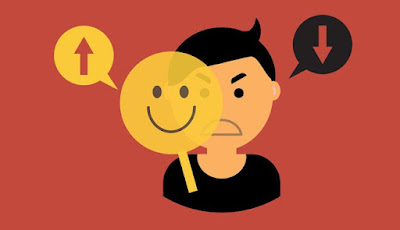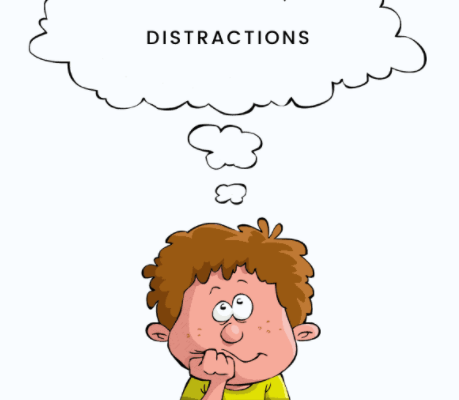There are no passive aggressive people. There is passive aggressive behavior. So passive aggressive people are not bad. Passive aggressive behavior causes some undesirable consequences.
The stereotypical image of a passive aggressive person is an “Evil manipulator whose aim in life is to make people feel guilty and then control them to get what they want.”
If that is all there is, then the main question becomes: “WHO is the bad guy in this scenario? Who is the evil one?”
If I do it, it is ‘keeping the peace’. If she does it , it is ‘manipulation’.
If I do it, it is ‘refraining from blaming’. If she does it , it is ‘inducing guilt’.
If we make behavior about the person, it is impossible to see it when we do it ourselves. We will find some way to justify our stance.
Rather than asking ‘Who?’ a more useful question is always ‘How?’
How does passive aggressive behavior happen?
Passive aggressive behavior is like going to the doctor and not telling him the symptom. And expecting him to treat your trouble. You mutter some incoherent symptoms and expect him to ‘get it’. “If he was competent enough, sincere enough – he would! it’s his job!!” you think.
Of course he cannot. You both lose. That’s the bad part. Simple?
But it sounds silly? Isn’t it obvious that it is unproductive? Why the hell would any patient do it?
- Maybe because he is an evil person who wants to make the doctor feel incompetent and guilty.
- Or maybe because he has a problem that he is embarrassed to talk about – like a sexual issue.
- Or maybe because his culture stigmatizes the problem so much that admitting it is ‘making it real’. The humiliation seems more painful than the problem itself.
- Or maybe he is afraid that the doctor will blame him for it(“I told you to stop smoking! Now you got cancer!”). And he will feel even more pained. Will we also blame the doctor then?
- Maybe the doctor is very kind and would never blame him. But the patient is too afraid to find out.
The above is not a justification for indulging in Passive aggressive behavior. It is just to show that the intention might not be ‘evil’. People know some things are bad. It is just that the alternative sounds worse. So we stick with the lesser evil.
If you indulge in passive aggressive behavior, know that you are not bad. You are just afraid.
Afraid of having your feelings hurt even more. Articulating them, facing them, taking the risk of being blamed back, or of being proven wrong. You know you should not feel this way. But they are feelings right?
An easier alternative is to ‘pass the suffering’ but not ‘face it’. To just let ‘things take their own course’. Sometimes they do!
My suggestion is to understand what is happening. To see what exactly it is you are afraid of. You experience an uncomfortable feeling. Let us say anger.
If you do express it directly, you are afraid of more uncomfortable feelings. There is exactly one type of response you are wishing for from the other person that will make you feel better. And you think the chances of getting it are pretty slim. Your mind is instead busy visualizing the scary alternatives. Which would lead to anxiety, guilt, humiliation, shame…in that order.
So should you take that 1% chance? Or better shut up and wish that they ‘will get it’?
But what is the 99% you are afraid of? Are they 99 TYPES of feelings? Do feelings have a type? They have intensity, yes. But not a type.
If the intense feeling was something you labeled ‘joy’ – the same racing pulse, increased heartbeat would have been welcomed. But since you have labeled it as ‘anger’ – the feeling is pushed away. This pushing away is the intensity you feel. And as the intensity increases, you start giving it new labels like anxiety, guilt, humiliation, shame. The intensity of pushing increases further. And you become even more afraid.
You are basically afraid of experiencing an intense feeling.
Had you just let the feeling be, it would pass. Not grow to be the mountain you made it.
A mind in an unhealthy state cannot come up with healthy ideas. You have to recognize the unhealthy state and let it heal itself. It does. 100% guaranteed.
Once it does, you would gain perspective. Your wisdom will emerge. Healthier ways to handle the issue might become obvious, without have to read a 100 books or take a “Effective communication” course.
You might say:
- “This is really embarrassing, but holding it inside is painful. I have to tell you something…”
- “I am really afraid of being blamed back, but I have to share something…”
- “Maybe it is not that big a thing, but it seems so to me. Can I share?”
- “I was expecting you to understand. Then I thought it might be illogical to expect you to mind read…so I wanted to ask for something”
- “I have never been used to expressing what I want. So this feels very awkward to me…”
You will not say the above when you are sure that you will get the 1 response you expect. You will say it when you are no longer afraid of the other 99.
Splitting one uncomfortable feeling into 99 and living in constant fear of them is the bad part. Wouldn’t you agree? Be kind to yourself. If you blame yourself for something – you will never be able to get past it.





